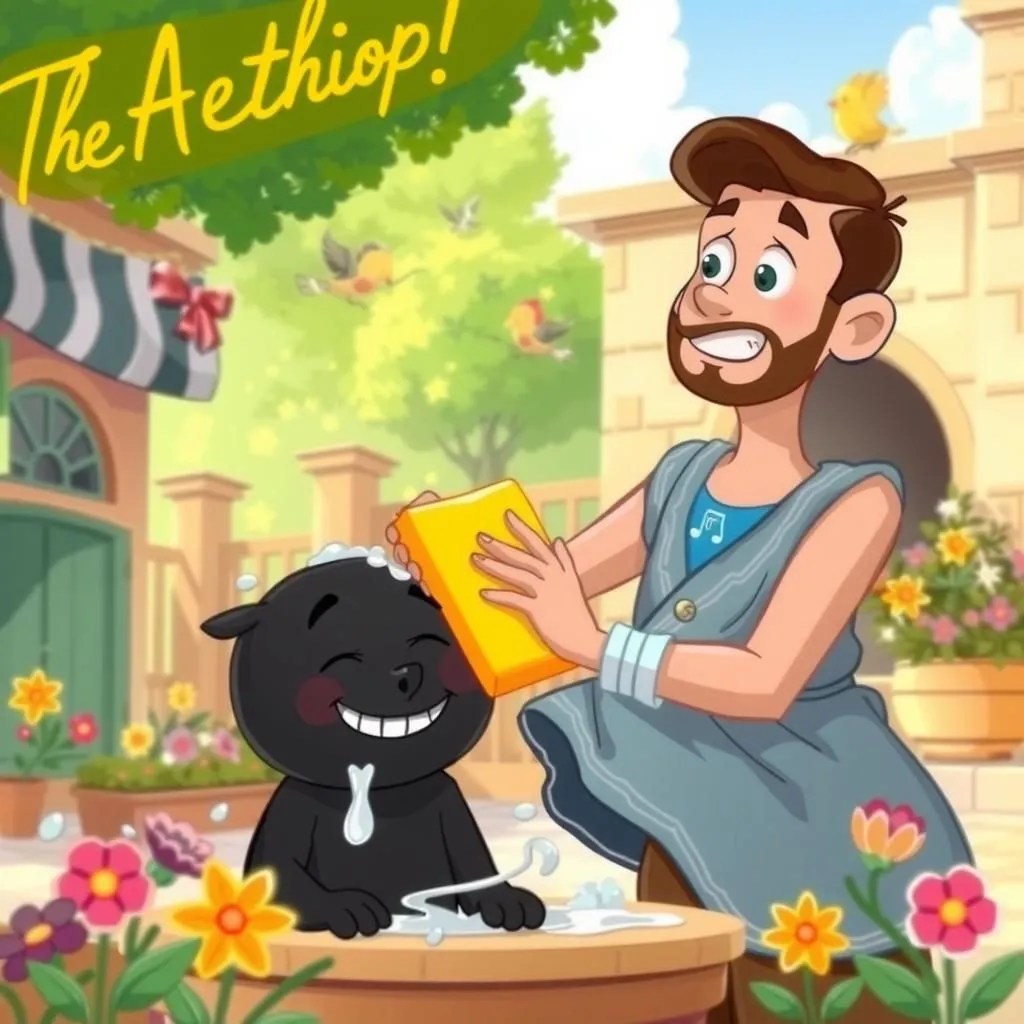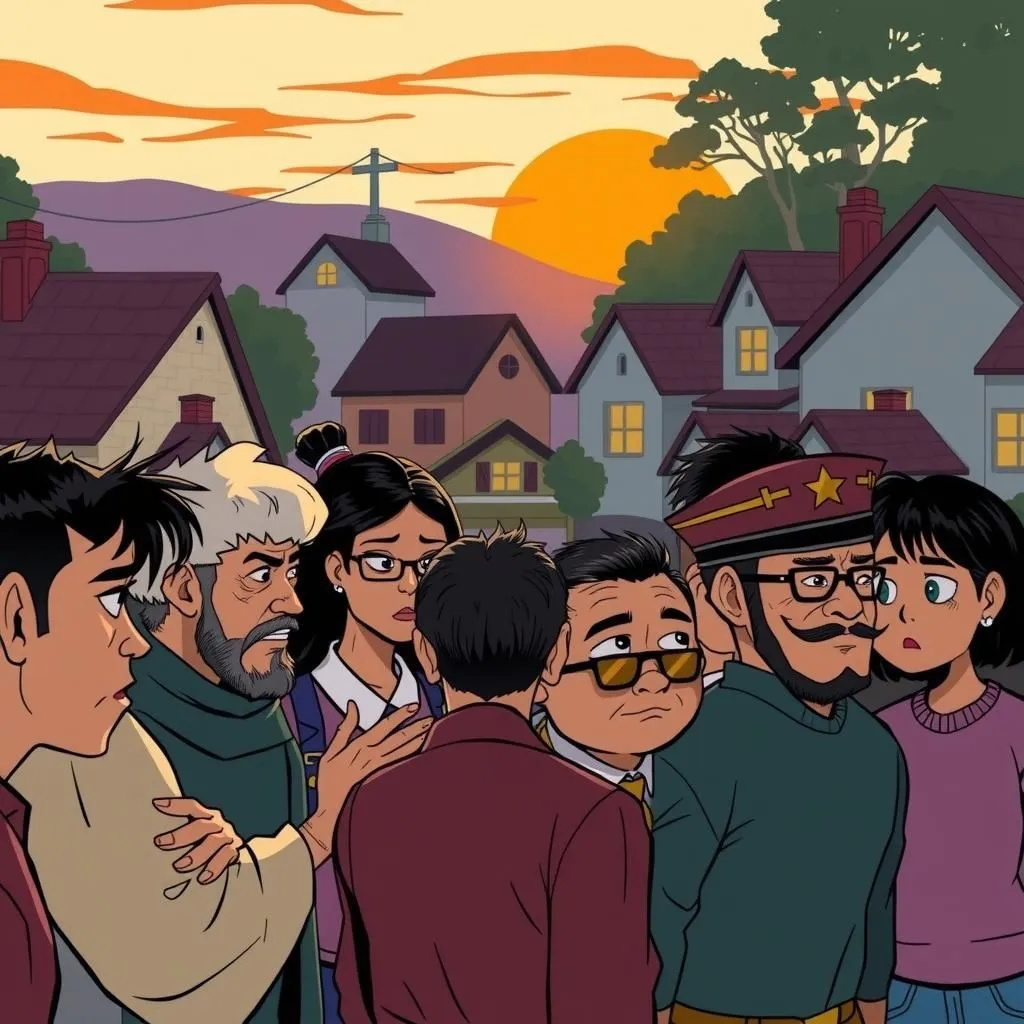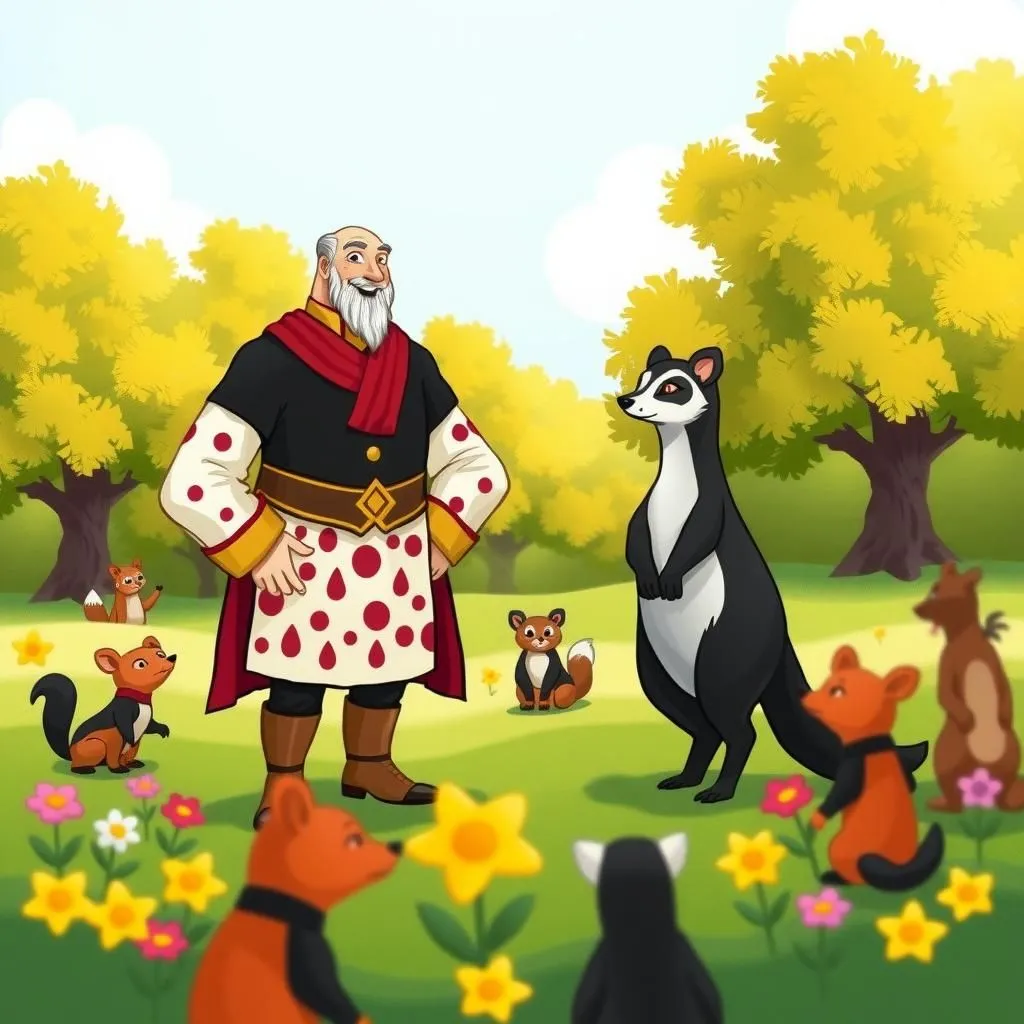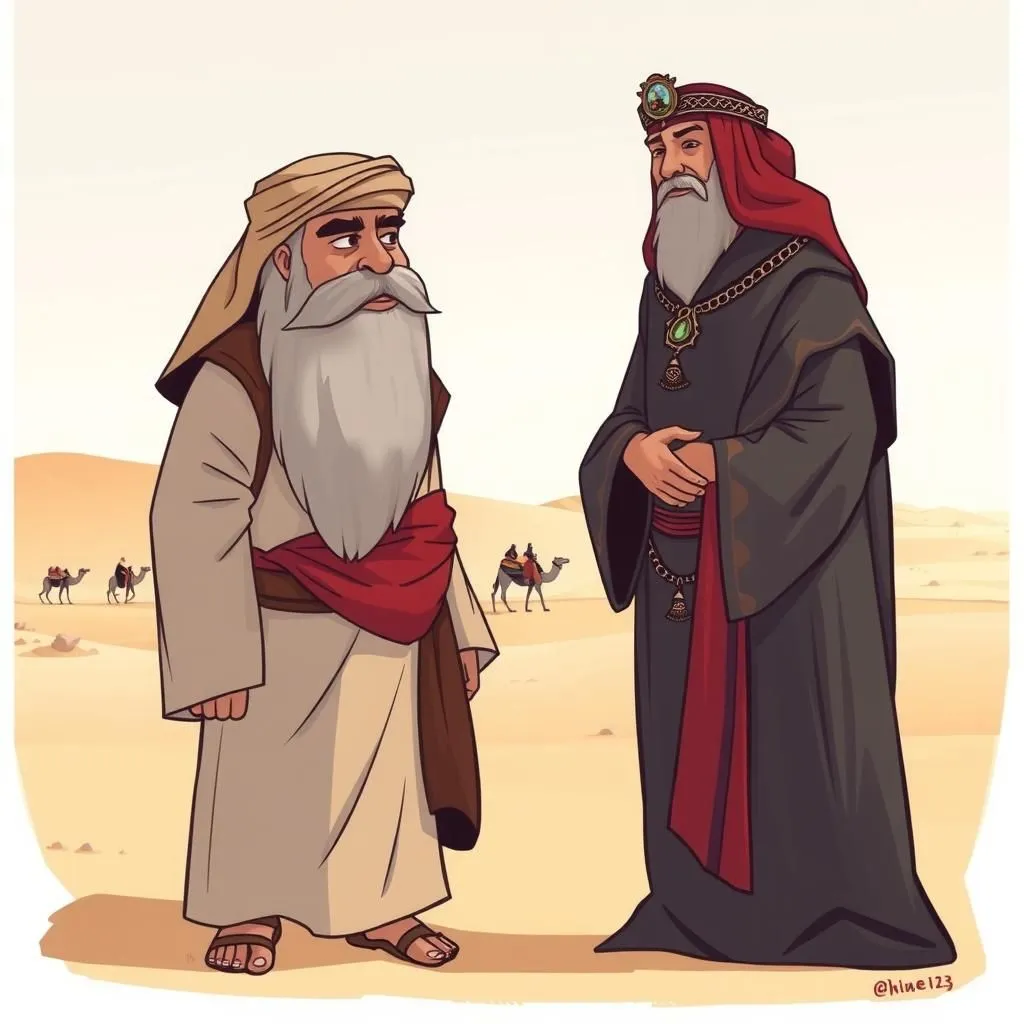
The Aethiop
In "The Aethiop," a man naively purchases a black servant, believing that his skin color is simply dirt that can be scrubbed away. Despite his relentless efforts, the servant's complexion remains unchanged, illustrating the life-lesson that inherent traits cannot be altered by external means. This short story with moral serves as a poignant reminder that what is bred in the bone will stick to the flesh, making it a compelling addition to uplifting moral stories and fable stories with moral.


